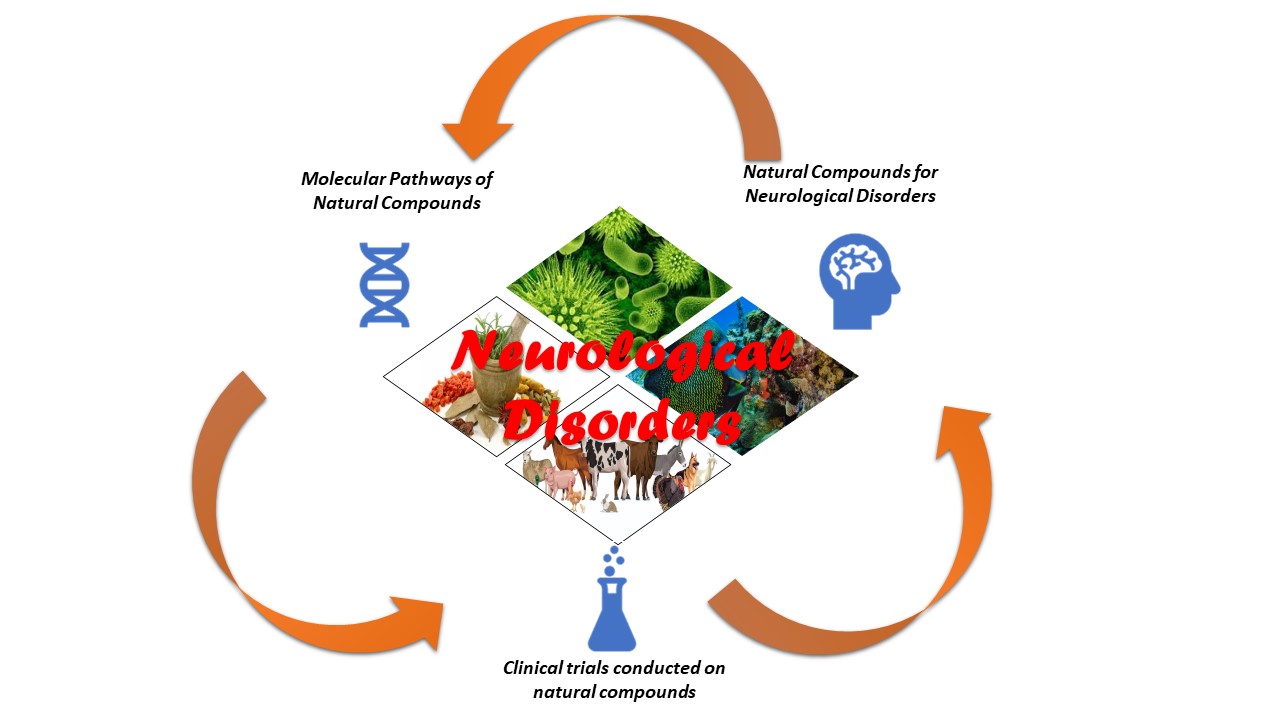Navigating neurological disorders
harnessing the power of natural compounds for innovative therapeutic breakthroughs
DOI:
https://doi.org/10.17179/excli2024-7051Keywords:
neuroprotection, natural compounds, animal sources, marine sources, neurological disordersAbstract
Novel treatments are needed as neurological issues become more frequent worldwide. According to the report, plants, oceans, microorganisms, and animals contain interesting drug discovery compounds. Alzheimer's, Parkinson's, and stroke reviews emphasize neurological disorders’ complexity and natural substances’ safety. Learn about marine-derived and herbal substances’ neuroprotective characteristics and applications. Molecular pathways show these substances’ neurological healing effects. This article discusses clinical usage of Bryostatin-1, Fucoidan, Icariin, Salvianolic acid, Curcumin, Resveratrol, etc. Their potential benefits for asthma and Alzheimer’s disease are complex. Although limited, the study promotes rigorous scientific research and collaboration between traditional and alternative medical practitioners. Unexplored natural compounds, quality control, well-structured clinical trials, and interdisciplinary collaboration should guide future study. Developing and employing natural chemicals to treat neurological illnesses requires ethical sourcing, sustainability, and public awareness. This detailed analysis covers natural chemicals’ current state, challenges, and opportunities in neurological disorder treatment.

Downloads
Published
How to Cite
License
Copyright (c) 2024 Rapuru Rushendran, Rukaiah Fatma Begum, Ankul Singh S, Pavithra Lakshmi Narayanan, Chitra Vellapandian, Bhupendra G. Prajapati, Pijush Kumar Paul

This work is licensed under a Creative Commons Attribution 4.0 International License.
Authors who publish in this journal agree to the following terms:
- The authors keep the copyright and grant the journal the right of first publication under the terms of the Creative Commons Attribution license, CC BY 4.0. This licencse permits unrestricted use, distribution and reproduction in any medium, provided that the original work is properly cited.
- The use of general descriptive names, trade names, trademarks, and so forth in this publication, even if not specifically identified, does not imply that these names are not protected by the relevant laws and regulations.
- Because the advice and information in this journal are believed to be true and accurate at the time of publication, neither the authors, the editors, nor the publisher accept any legal responsibility for any errors or omissions presented in the publication. The publisher makes no guarantee, express or implied, with respect to the material contained herein.
- The authors can enter into additional contracts for the non-exclusive distribution of the journal's published version by citing the initial publication in this journal (e.g. publishing in an institutional repository or in a book).





